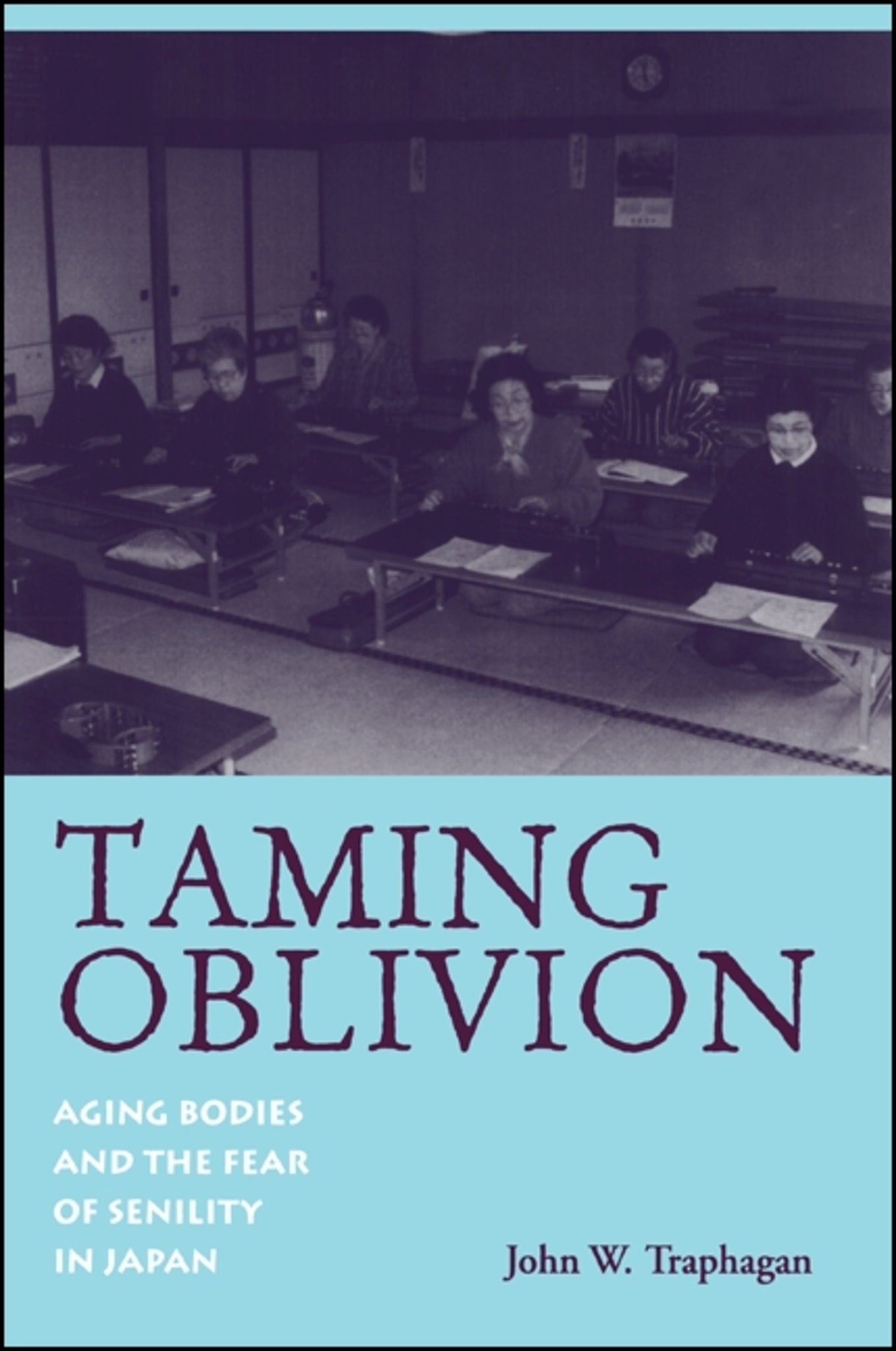We're sorry. An error has occurred
Please cancel or retry.
Taming Oblivion

Some error occured while loading the Quick View. Please close the Quick View and try reloading the page.
Couldn't load pickup availability
- Format:
-
17 February 2000

Examines the cultural construction of senility in Japan and the moral implications of dependent behavior for older Japanese.
Taming Oblivion examines the cultural construction of senility in Japan and the moral implications of dependent behavior for older Japanese. While the biomedical construction of senility-as-pathology has become increasingly the norm in North America, in Japan a folk category of senility exists known as boke. Although symptomatically and conceptually overlapping with Alzheimer's disease and other forms of senile dementia, boke is distinguished from unambiguously pathological conditions. Rather than being viewed as a disease, boke is seen as an illness over which people have some degree of control. John Traphagan's ethnographic study of older Japanese explores their experiences as they contemplate and attempt to prevent or delay the boke condition.


"With a focus on how old age is viewed and experienced in a rural setting in Japan, the author's work provides a powerful example of how aging-related concepts are socially constructed and culturally circumscribed. He provides an insightful review of some of the facets of Japanese society that contribute to people's concerns related to aging and illness, including culture-specific fears (e.g., concerns about the inability to maintain social interdependencies), patterns of 'age segregation' ('age grading' practices), and demographic and social changes that threaten traditional norms for caring for the elderly. Within his multifaceted focus of the meaning of aging in Japan, the author presents a balanced view of rural life." — Matthew Kaplan, coauthor of Intergenerational Programs: Support for Children, Youth, and Elders in Japan
"In an era of lengthening lifespan, declining familism, and a changing concept of aging, this book is timely. It brings together a number of streams of scholarship—Japan ethnology, gerontology, and critical anthropology." — Christie W. Kiefer, coauthor of Refuge of the Honored: Social Organization in a Japanese Retirement Community
List of Figures and Tables
Preface
1. Introduction: The Road to Oblivion
PART I: Of Old and New
2. Inaka
3. History and Continuity: Household, Community, and Old Age in Jonai
PART II: Age-Structuring Practices
4. Talking about Age
5. Age Grading around Jonai
PART III: Aging, Activity, and the Body
6. Being a Rojin: Activity and Camaraderie in the Elder Age Grade
7. Boke and the Disembodiment of Social Values: Mental and Physical Health as Social Responsibility
8. Taming Oblivion: Power, Collectivity, and the Body Politic
9. Conclusion: In the Shadow of Obasuteyama
Appendix
Notes
Bibliography
Glossary
Index



